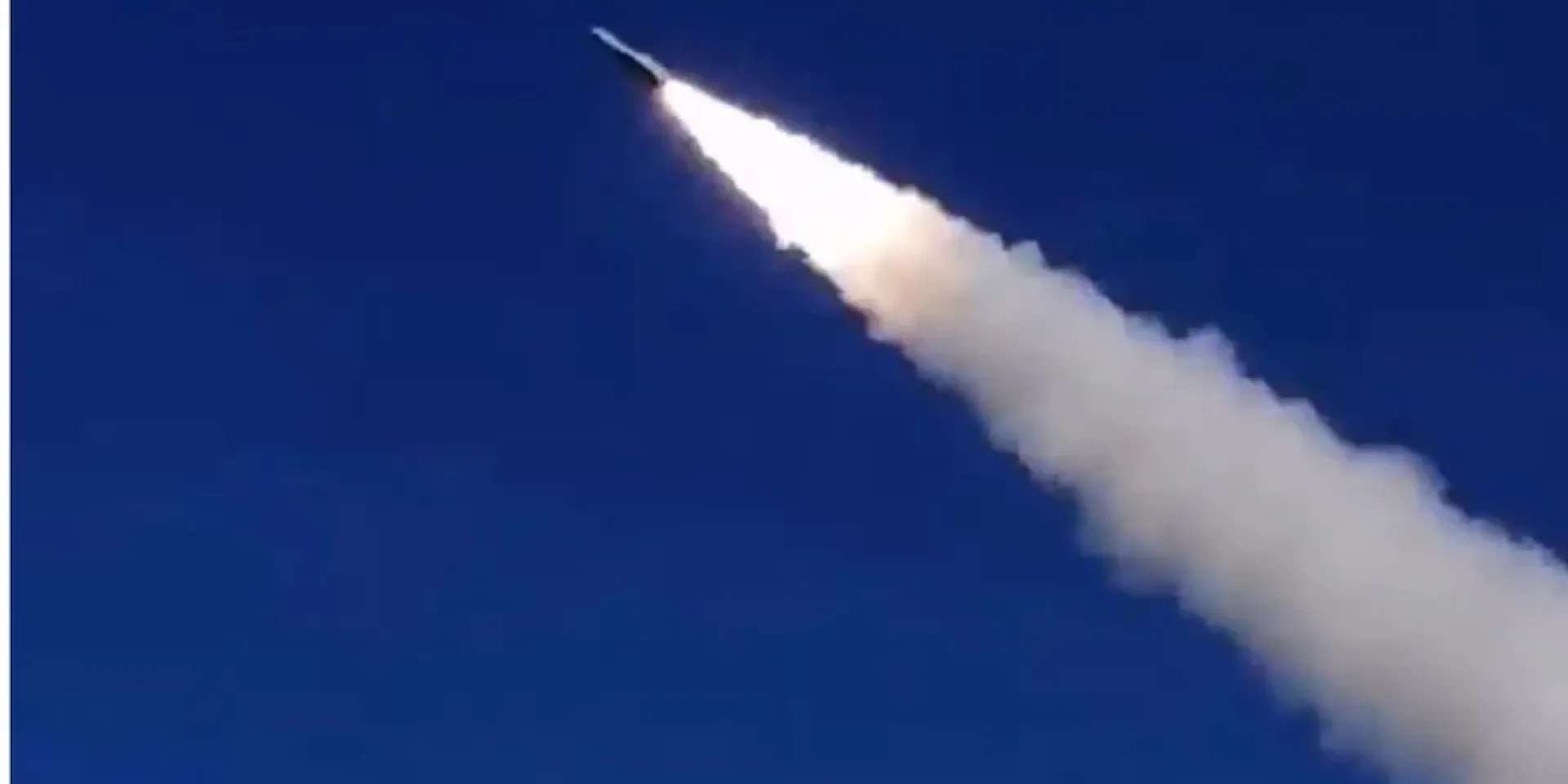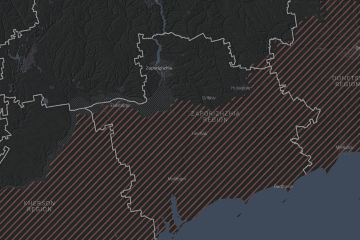- Category
- War in Ukraine
Every Time Russia Violated NATO Borders and Got Away With It

Since the beginning of the Russian full-scale war against Ukraine, there has been a concerning pattern of Russia violating NATO countries’ borders. From airspace incursions to suspected electronic warfare, these actions are seen as signs of a deliberate escalation by Moscow.
The North Atlantic Treaty Organization (NATO) functions under the principle of collective defense, enshrined in Article 5. This cornerstone agreement dictates that an attack on one member state is considered an attack on all. However, Russia’s repeated violations of NATO countries’ sovereign borders have raised questions about the interpretation and potential application of Article 5.
Here are all the times and ways Russia breached NATO’s borders and got away with it.
Physical Border Breachings
Romania
A recent incident raising concerns about potential Russian border violations towards NATO member states occurred on the evening of July 24t, 2024. Air raid sirens within Romania’s Tulcea district, situated along the border with Ukraine, were activated. According to Romanian news sources, the RO-Alert emergency notification system disseminated warnings to local residents regarding potential drone activity in close proximity to the frontier.
Poland
On March 24, at 4:23 am, a Russian cruise missile launched from a long-range warplane violated Polish airspace near the village of Oserdów, Lublin voivodeship. The missile remained in Polish airspace for a full 39 seconds before turning back into Ukrainian territory, according to Polish military officials.
“Polish airspace was violated at 04:23 by one of the cruise missiles launched by Russian long-range aircraft tonight. They were targeting cities in Ukraine’s west,” Polish Operational Command said.
Poland scrambled fighter jets during Russia’s mass missile strike on Ukraine, saying they initiated “all necessary procedures to ensure the security of Poland’s airspace,” according to the Polish Army’s operational command.
Another instance of violation of Poland’s airspace by a Russian missile occured in December 2023. Polish Armed Forces Chief, Gen Wieslaw Kukula, stated a Russian missile entered Poland for almost three minutes and then turned back into Ukrainian airspace. Polish authorities believed the missile traveled approximately 40 kilometers (25 miles) inside their airspace.
President Andrzej Duda convened an emergency security meeting after the object was picked up on radar.
Finland
On June 10th, a Russian aircraft was suspected of violating Finnish airspace near Loviisa in the eastern Gulf of Finland. Finnish authorities reported the aircraft remained in their airspace for approximately 2 minutes, penetrating as far as 2.5 kilometers inside the border.
Defense Minister Antti Häkkänen stated: “We take the suspected violation of territorial integrity seriously, and an investigation has been promptly initiated.”
Later, Finland’s border guard service came out with a statement that a suspected violation of its airspace by Russia is believed to have involved four warplanes instead of the initially reported one. Finnish authorities said the “violation is suspected to have occurred by a four-plane division, which included two bomber and two fighter-class aircraft.”
Sweden
On June 14, the Swedish air force deployed a JAS 39 Gripen fighter jet after a Russian Su-24 tactical bomber entered restricted airspace near the southern tip of Gotland, a strategic Baltic Sea island, according to a statement from the country’s Armed Forces.
Henrik Nystrom, Press Secretary for the Swedish Armed Forces, said that the Gripen “intercepted the aircraft after it failed to respond and continued on a course towards Swedish air space.”
The following day, General Jonas Wikman, Chief of the Swedish air force, informed the public broadcaster Sveriges Radio in Stockholm that the Russian military jet penetrated approximately 3 miles into Swedish airspace—defined by international law as extending up to 12 nautical miles from the coastline—before being “removed” by the interceptor.
As a response, on June 18, the Ministry for Foreign Affairs summoned the Russian Ambassador to express its stance against Russia’s violation of Swedish airspace that took place on June 14.
Lithuania
On June 30, a Russian Pobeda airline aircraft entered Lithuanian airspace over the Baltic Sea for about one minute on its way from Moscow’s Vnukovo airport to Kaliningrad airport.
The Lithuanian Foreign Ministry demanded the Russian diplomats “provide an explanation as soon as possible and take all necessary measures to prevent such incidents from happening in the future.”
Concerns Over the Baltic Sea
On May 21, A draft bill was proposed by the Russian Ministry of Defense, that called for a unilateral change to Russia’s borders with Finland, Estonia, and Lithuania in the Baltic Sea, changing the borders near Baltiysk, Zelenogradsk, and the eastern Gulf of Finland. These changes would have allowed Russia to claim the corresponding waters as its internal seas. The bill was taken down from the government’s website later.
As a response to that, Sweden’s top military official, General Micael Bydén, expressed fears about Russia’s ambitions in the Baltic Sea, particularly regarding the strategically important island of Gotland. General Bydén stated his belief that Vladimir Putin desires control of the Baltic Sea and has his eyes on Gotland, prompting Sweden to bolster its defenses on the island with permanently stationed units and additional forces in case of heightened danger.
According to the General, “Whoever controls Gotland controls the Baltic Sea.” Russia’s war in Ukraine changed the political situation in Europe, that’s why Sweden is securing the island with permanently stationed units and temporarily bringing additional forces there if the danger situation increases.
Electronic Interference and GPS Disruptions
Since early 2024, a drastic increase in disruptions to civilian aircraft navigation systems has been reported across the Baltic states, Finland, and Poland. Eurocontrol, the European air traffic control organization, received a staggering 985 reports of GPS malfunctions, interference, and false signals in the first two months of 2024 alone. This represents a sharp rise compared to the 1,371 reports received for the entirety of 2023.
Russia has been accused of disrupting GPS signals during hundreds of British military flights. Between January and April 2024, analysis of Flight Radar data revealed that British military aircraft, conducting 1,467 flights over Eastern Europe and the Middle East, encountered GPS disruptions on 142 occasions. This interference affected 60 flights multiple times.
Estonia directly accused Russia of interfering with these GPS signals, potentially jeopardizing flight safety.
NATO member states expressed deep concern over these activities, viewing them as threats to their collective security. Lithuanian Foreign Minister Gabrielius Landsbergis even advocated for a strong response, urging NATO to shoot down any Russian air targets that violate the airspace of member states.
This illustrates the urgency of the air defense systems, which Ukraine relentlessly advocates for, in order not only to protect its own cities and civilians from Russian missiles, but also to safeguard the borders with its NATO allies.
-ba02b3bc86f0b624f99115809a6a34d0.jpg)


-29a1a43aba23f9bb779a1ac8b98d2121.jpeg)

-0666d38c3abb51dc66be9ab82b971e20.jpg)
-35249c104385ca158fb62273fbd31476.jpg)


-554f0711f15a880af68b2550a739eee4.jpg)